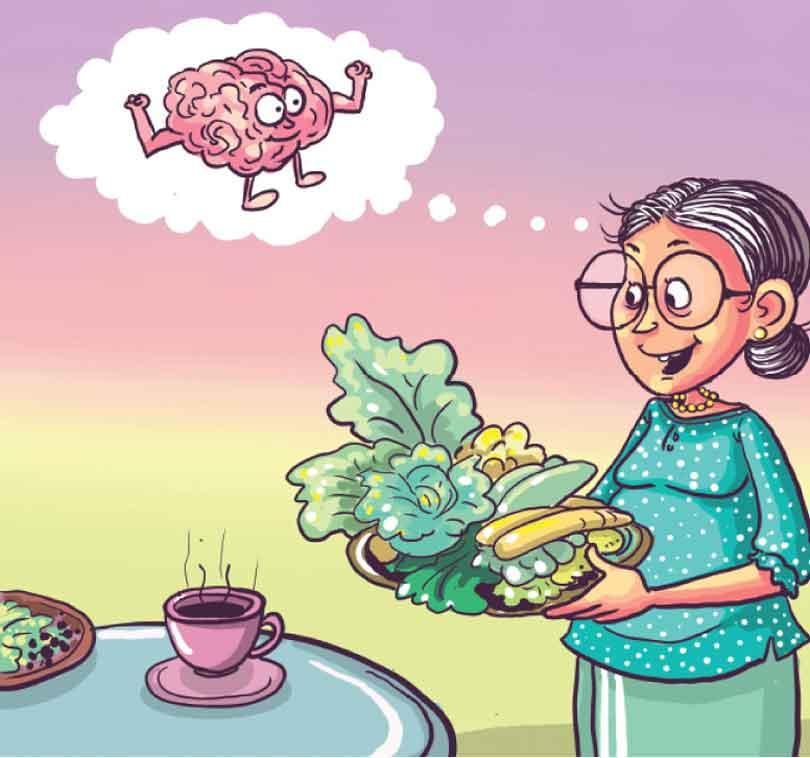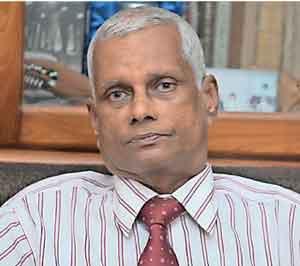24 Nov 2020 - {{hitsCtrl.values.hits}}

 When it comes to preventing memory loss in seniors, it seems like an uphill battle with thousands of seniors affected around the world every year. While memory loss may be temporary for some elderly people, types of memory loss caused by diseases such as Dementia and Alzheimer’s are often permanent. Although, there is a vast range of remedies to deal with memory loss, the best prevention, as revealed by studies, may be with nutrition. It has been proven that poor nutrition does not just cause poor health for those with dementia; it can also spike some of the unwanted behavioural symptoms linked with these diseases. On the other hand, having foods that have been shown to assist with brain health – particularly in the early stages – can help reduce and hold off brain decline as well as improve cognitive functioning.
When it comes to preventing memory loss in seniors, it seems like an uphill battle with thousands of seniors affected around the world every year. While memory loss may be temporary for some elderly people, types of memory loss caused by diseases such as Dementia and Alzheimer’s are often permanent. Although, there is a vast range of remedies to deal with memory loss, the best prevention, as revealed by studies, may be with nutrition. It has been proven that poor nutrition does not just cause poor health for those with dementia; it can also spike some of the unwanted behavioural symptoms linked with these diseases. On the other hand, having foods that have been shown to assist with brain health – particularly in the early stages – can help reduce and hold off brain decline as well as improve cognitive functioning.
Memory loss conditions like Dementia and Alzheimer’s disease are believed to be caused by a combination of genetic, environmental, and lifestyle factors including diet and nutrition. Health conditions such as high blood pressure, heart disease, diabetes, and obesity can also contribute to cognitive decline, and these ill conditions are often affected by the food choices you make. Practising good nutrition and eating lots of healthy foods is proven to help reduce the risk of Dementia and Alzheimer’s disease in seniors.
When it comes to the health of our elders, the saying- “You are what you eat”- is true in every sense. Professor Ranil de Silva, Director, Interdisciplinary Center for Innovation in Biotechnology & Neuroscience, Faculty of Medical Sciences, University of Sri Jayewardenepura, attested to this. In fact, he and his team have conducted a number of researches on this and the results they derived has helped shed more light on the importance of good nutrition for our seniors. His proven research cites two main factors and that is the importance of following healthy eating patterns for a healthy well-being and how keeping the brain active can enhance the prevention of memory and cognitive loss diseases.
Professor Ranil and his team have conducted extensive research on this subject and the results have also been published in some of the top US medical journals like the Journal of Alzheimer’s Disease. The research includes the study of human brain specimens between the ages 50 to 80 of Sri Lankan and Indian origin. The researchers were focused on finding the effects of memory and cognitive loss conditions like Parkinson’s disease and Alzheimer’s in the brain specimens. Subsequently, the researchers found that the brain specimens of those persons who had a history of good, traditional nutrition like green leafy vegetables, yellow coloured vegetables and had a habit of consuming black tea showed less sign of memory loss conditions as compare to the brain specimens of the persons who did not have a habit of eating the aforementioned foods, specifically.
It’s not surprising, since these food types and black tea are rich in antioxidants and consuming more antioxidant-rich foods can help reduce the oxidation and inflammation that affects the communication between brain cells. Memory loss in seniors has also been linked to a reduction in their brains’ cognitive function. Yellow vegetables and green, leafy vegetables can help improve this condition, as was gleaned by this research. Studies have shown us that a single daily serving of any leafy green vegetable can slow cognitive decline because it is believed that folate, beta-carotene, and vitamin K in leafy greens have brain-boosting benefits.
The research conducted by Professor Ranil and his team was highly lauded across the international medical community too. The research provided conclusive proof that good, solid nutrition with plenty of vegetables and black tea can help combat the effects of memory loss diseases in seniors but that was only part of their findings. The study also focused on the study of genes of the brain specimens. Genetics play a role when it comes to memory loss diseases like Dementia and conditions like stroke. The team proposed that to combat this, folic acid needs to be taken or to consume plenty of green vegetables as they are rich in folate.
The third segment of the brain specimens study revealed that keeping the brain active, even when one ages was paramount in helping to keep memory and cognitive loss conditions at bay. The brain always needs to be kept active and not doing so can lead to seniors being more susceptible to its decline. Exercising our brains through life-long learning habits can be the key to reducing the risk of memory loss. Some simple brain exercises like Brain training games that involve strategy or reading newspapers, challenging books and doing puzzles are all options to help elders. The research done by Professor Ranil showed that the brain specimens that had a lot of brain activity showed very little signs of developing conditions like Alzheimer’s and Dementia.
The subject of consuming tea to combat memory loss diseases was looked in at detail during the research. The study found that those who take three cups of tea daily, when compared to those who has two cups of tea daily had a stronger chance of preventing of diseases like Dementia and Alzheimer’s. The bottom line of tea on this research was that Ceylon Black tea or any type of tea taken frequently can help improve memory and ward off memory loss conditions in seniors. The researchers also studied the brain activity of live participants and discovered that drinking coffee also had a significant effect on boosting brain activity and helping it combat conditions like Parkinson’s disease.
The message is strong and clear that Sri Lankan foods that are so readily available to us can help boost brain activity and reduce the risk of memory loss conditions that afflict so many around the globe.
Prof. Ranil De Silva is the Director, Interdisciplinary Center for Innovation in Biotechnology &Neuroscience and the Principal Investigator, Genetic Diagnostic & Research Laboratory and Human Brain Tissue and DNA Repository of the, Faculty of Medical Sciences, University of Sri Jayewardenepura, Sri Lanka. Dr. De Silva has proven a record of successful leadership in fostering an innovative research and training culture in Sri Lanka and the Asian Pacific region, based on scientific excellence and worldwide collaboration.
About Life After Retirement
Life After Retirement (LAR) is a community for Elders and Senior Citizens in Sri Lanka, with many facets and related concepts on one platform. LAR is aimed at not only disseminating useful information and educating the Elders and Senior Citizens in Sri Lanka, but also seeks to connect them all both locally and globally.
LAR includes various Elders and Senior Citizens’ related aspects such as providing lifestyle and medical advice, senior citizens online shopping, fund management, leisure and holiday-making avenues, as well as trainings, courses and workshops specifically catered to on latest technology and everyday gadgets.
24 Nov 2024 2 hours ago
24 Nov 2024 5 hours ago
24 Nov 2024 5 hours ago
24 Nov 2024 6 hours ago